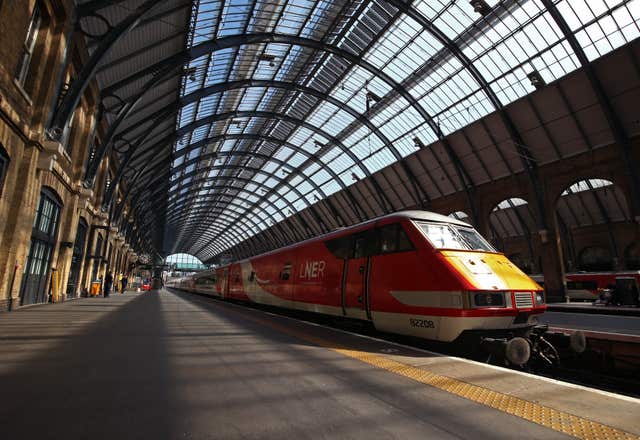
Virgin Trains East Coast (VTEC) may have survived if the Department for Transport (DfT) had assessed its bid properly, MPs have found.
The department encouraged overbidding and failed to sufficiently stress-test the proposal submitted by VTEC, according to a report by the Commons’ Transport Select Committee.
The franchise to run services on the East Coast Main Line failed because VTEC – a partnership between Stagecoach (90%) and Virgin (10%) – ran out of money after failing to hit “over-optimistic” revenue targets, MPs concluded.
Some £3.3 billion was due to be paid to the Government by the operator over eight years from March 2015.
But the contract was ended in June as revenue and passenger growth anticipated at the time of the bid failed to materialise.
Stagecoach says it lost £200 million.
Franchises should be able to withstand “normal fluctuations in the economic cycle”, the committee said.
“The fact that this franchise did not suggests that Stagecoach and Virgin built very little resilience into their bid.”
Although the MPs described the private firms as “naive” and claimed they “bear prime responsibility” for the franchise failure, they insisted that the DfT must “also take responsibility for not managing the bid process effectively”.

If the DfT had conducted “appropriate due diligence and identified weaknesses” in the bid, it “may not have been in this position today”, the report stated.
The committee accused the Government of not finding “the right balance between the risk of franchise failure and returns they might obtain from encouraging ambitious bids”, adding: “We recommend the department revisit its approach to franchise failure.”
It has been reported the Downing Street is considering launching an inquiry into franchising as part of a wider rail review.
The committee noted that Network Rail “do not bear any responsibility for the early termination”, as it provided all the upgrades it had “formally committed to when this franchise was let”.
Services on the route were brought back into public ownership.
Nationalised operator London North Eastern Railway will operate until a public-private East Coast Partnership (ECP) takes responsibility for both trains and track operations in 2020.
The committee warned that the ECP proposal “risks adding an additional layer of complexity to this part of the network”.
VTEC is the third private operator to fail to complete the full length of a contract to run East Coast services.
GNER was stripped of the route in 2007 after its parent company suffered financial difficulties, while National Express withdrew in 2009.
Stagecoach said in a statement that in formulating its East Coast bid it “used the same bold, ambitious and meticulous approach which delivered strong success in the past”.
It added: “As the committee makes absolutely clear, there was no incentive to deliberately overbid and there was no taxpayer bailout in the unfortunate premature end to the contract.”
A DfT spokesman said: “We are now preparing for East Coast Partnership – bringing together the operation of track and train to deliver a high-quality service to passengers and value for money for the taxpayer.
“We want train companies to have a greater role in infrastructure planning to help them act as stewards for the rail network and deliver the greatest possible benefits for passengers.
“We have introduced new measures to deter over-bidding for franchises and improved our financial modelling and stress testing. Bids are now assessed with a greater emphasis on overall value for the passenger.”


Comments: Our rules
We want our comments to be a lively and valuable part of our community - a place where readers can debate and engage with the most important local issues. The ability to comment on our stories is a privilege, not a right, however, and that privilege may be withdrawn if it is abused or misused.
Please report any comments that break our rules.
Read the rules here